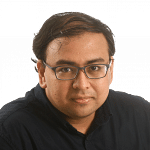Recent developments in this region and around the world highlight how race and religion have become stark markers of identity, divisive forces that could split society if left unchecked.
So it was heartening to hear several MPs during the debate on changes to the Presidential Elections Act speak of how Singapore should take the opportunity afforded by the amendments to adopt an inclusive approach to race.
Yesterday's debate follows changes to the Constitution passed in November last year that aimed to entrench Singapore's commitment to multiracialism, and ensure that the presidency reflects the country's multiracial society.
This year will see the first reserved election - for candidates from the Malay community - while the election which follows will be open to all. And elections thereafter will be reserved for a community if it has not been represented for five terms.
But one key issue is how race is defined.
As Mr Vikram Nair (Sembawang GRC) put it yesterday, race is "part ethnicity and part identity".
"A Chinese person adopted at infancy by an Indian family may grow up identifying themselves as part of the Indian community despite their ethnicity. Indeed, interracial adoptions were common particularly during the baby-boom years when parents were unable to care for all their children," he said.
Several MPs also raised the example of individuals of mixed heritage, as inter-ethnic marriages become more common.
Speaking in Mandarin, Nominated MP and Singapore Chinese Chamber of Commerce and Industry president Thomas Chua said: "Singapore is a multiracial society; interracial marriages and new immigrants will create the interchanging and integration of ethnicity, which is a positive development.
"If there is an outstanding individual with superlative abilities who is willing to serve society, and whose parents belong to different ethnic groups, both ethnic groups would be proud of him or her."
These examples may well surface as the latest amendments to the Presidential Elections Act put in place a mechanism for ensuring that representatives of the main communities here are periodically represented in the highest office.
One key structure elaborated on yesterday by Minister in the Prime Minister's Office Chan Chun Sing is a Community Committee - made up of a chairman and three sub-committees for the Chinese, Malay, and Indian and Other Minority Communities.
A prospective election candidate will have to declare the community of which he or she considers himself or herself to be a member, and the sub-committee will then decide if it agrees.
Mr Chua noted that "besides ethnicity, character and capability are even more important". Hence his call on the committee to be big-hearted in assessing applicants.
"Should there be any candidates originating from interracial backgrounds participating in the next presidential election, I hope the Community Committee could make the correct decision based on the criterion of ethnicity, to avoid losing talent," he said.
Mr Chan welcomed these suggestions, adding that should there be candidates of mixed parentage, the Community Committee is encouraged to adopt an inclusive approach.
"In fact, by adopting an inclusive approach, we are allowing more people to be identified with a certain community," he said. "Our approach is quite different from the approach suggested by some other members who want to be even more clearly defined as to who forms what community."
Indeed, the call for openness and inclusivity was not roundly felt.
Mr Pritam Singh (Aljunied GRC) reiterated the Workers' Party's opposition to the elected presidency and raised questions on the workings of the Community Committee that reflected less-than-inclusive sentiments.
Mr Singh cited, for example, an Indian candidate whose spouse may not feel part of that community, or a Malay candidate whose spouse may have converted to Islam "but does not partake in the practices of the faith".
"Should there be residual doubts about how the Community Committee makes its decisions, the presidency could be anything but a unifying office not just for Singaporeans in general, but the respective minority race in particular," he said.
Mr Singh also pressed Mr Chan on language: "If a presidential election is to be reserved for the Malay community, would it not be practical for the Government to agree that Malay as a language would be the expectation of any candidate... up to the level expected of students at schools through the educational system?"
Mr Chan, in reply, pointed to the nearly 30-year history of the two minority community committees which have certified candidates for general elections since the group representation constituency system began.
"We have established precedents," he said. "On the issue of language, I would say that the Community Committee and the respective sub-committees will need to assess the person holistically. Yes, language will be one of the criteria but we are also keenly aware that all of us, regardless of our race, language, religion, we practise our religions slightly differently. We live our lifestyle differently.
"The philosophy has never changed... As a package, do you believe that this person belongs to your community?" he added.
Questions like those Mr Singh raised may surface again among a vocal few. But it would be a pity if they did. For it would detract from the presidency as a unifying symbol, and the fact that a president, regardless of which community he is from, is, above all, a president for all Singaporeans.



